Molten Magma, Gushing Geysers & Avalanche Peak: 2 days in Yellowstone National Park
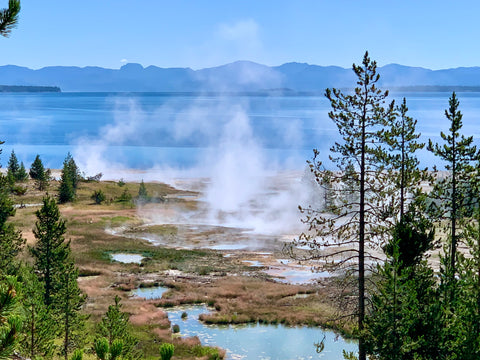
Did you know that Yellowstone National Park is located above a molten hot magma chamber nearly the size of the island of Oahu?
Yes, it's true. The Yellowstone caldera that formed most of the iconic features inside Yellowstone National Park is the result of a relatively recent series of super volcanic explosions over the last 2 million years. Scientists do not agree on the origin of the volcanic hot spot but most agree the next "super" explosion will be in the far distant future.
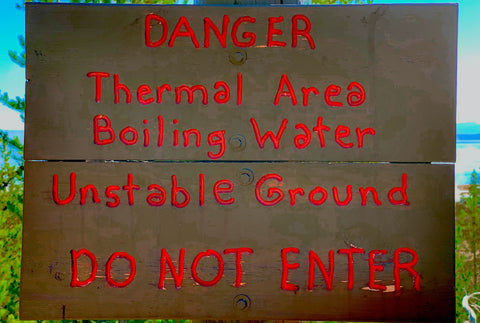
No need to worry just yet, unless, NASA's proposed $3.46 billion dollar plan is approved to inject water at high pressure 10 kilometers down into the magma chamber to release and relieve the heat back to the Earth's surface in hopes of gaining a geothermal power source and suppressing a near-future supervolcano event.
Isn't that what the more than 10,000 naturally occurring hydrothermal features including boiling mud pots, hot springs, and 500 spewing geysers are actively doing already?
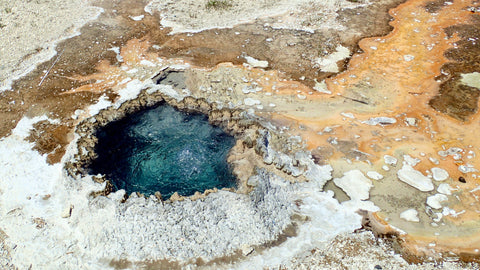
A hot spring boils (above) while a nearby geyser (below) erupts on schedule.
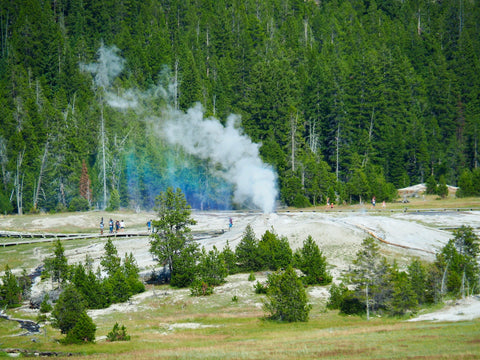
In the Upper Geyser Basin, where the world-famous Old Faithful geyser resides, an easy 5-mile hiking trail consisting of boardwalks and paved pathways routes visitors past gushing geysers and jewel-toned pools. Placards announce eruption times and educate viewers on the underground volcanic plumbing. Additional trails lead from the basin to less crowded backcountry geysers, rocky waterfalls, and spectacular observation points of the basin below.
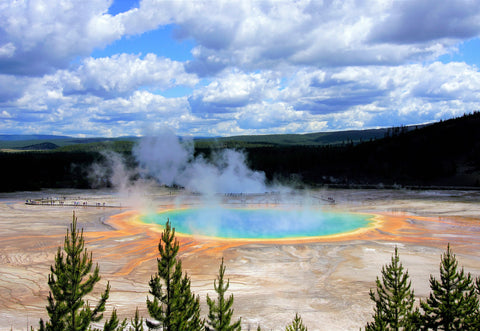
The vivid colors are created by microscopic lifeforms that thrive in thermic environments.
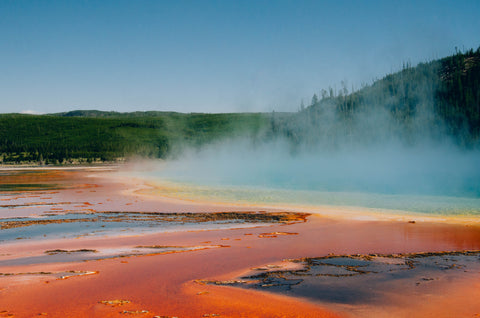
The first European explorers to visit the Yellowstone area in the early 19th century described the landscape as "fire and brimstone." Many dismissed the reports until the Washburn expedition of 1870 spent a month exploring, observing, and collecting specimens in the Great Geyser Basin. Soon after, several members of the expedition petitioned Congress to protect the region for future generations. In 1872, Yellowstone National Park became America's and possibly the world's first national park signed into law by Ulysses S. Grant. Consequently, the Greater Yellowstone Ecosystem is one of the largest nearly-intact ecosystems in the northern hemisphere.
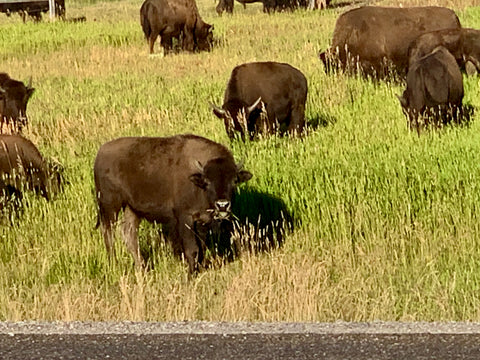
The native grasslands of Yellowstone feed one of the oldest free-roaming bison herds in America.
Geysers, Grizzly bears, and bison are just a few of the attractions people from around the world come to enjoy. Yellowstone is a striking geological landscape filled with steam, sulfurous scents, and alpine mountains covered in a lush pine forest that conceals the sun. Hiking to grand waterfalls, jewel-toned geyser formations, or a summit overlooking the Yellowstone caldera can range from a leisurely walk to difficult terrain that requires rising early to make the summit before afternoon ridgeline storms appear.
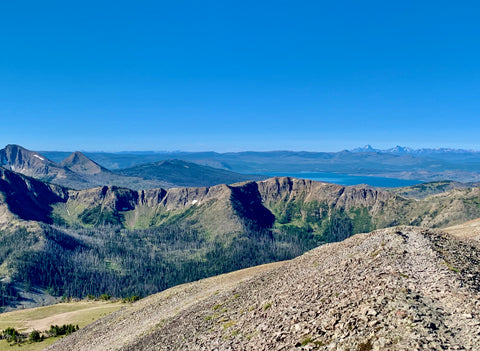
Avalanche Peak is 10,568 feet in elevation and overlooks the eastern ridge of the Yellowstone caldera. Beyond the ridge, is Yellowstone Lake which lies directly above the molten magma chamber. In the far distance are the snowcapped peaks of the Grand Tetons.
There are over 4 million visitors to Yellowstone National Park each year. The summer months are the busiest, while much of the park is inaccessible in the winter months. Reservations for lodging or camping should be made well in advance. However, we went on a whim and were able to find free camping in the surrounding Shoshone & Brigider Teton National Forests during the peak of summer tourism. Trails and roads were crowded, but we were still able to find isolated spots to enjoy the views. There is no other place on Earth like Yellowstone. Anyone, at any age or ability, can enjoy the fascinating landscapes of Yellowstone National Park.

1 comment
Been there, done that.
Once for 2 days at age 15 and againfor 2weeks at age 77.
Rnjoyed